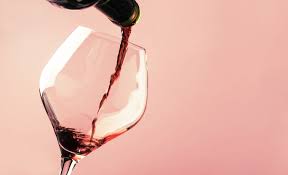Moreover, the FDA’s guidelines for vaccine administration and use don’t mention alcohol; the only warnings the FDA gives for vaccines have to do with severe allergies.
The CDC does warn that people may experience a more intense reaction after receiving a second dose. Side effects, which include fever and chills, can be more pronounced after the second dose. These symptoms can be more intense if one has been drinking (which would be the case with any common cold or mild flu). Try to imagine nursing a hangover at the same time as the flu: none of that seems fun.
Last fall, a Russian scientist, Anna Popova, caused a minor stir when she recommended that Russians quit drinking alcohol two weeks before their vaccine shot, and then three weeks after the second. New Scientist interviewed another Russian scientist, who also said he “strongly recommends refraining from alcohol for three days after each injection.”
The thinking is based on scientific literature that links excess alcohol use with a lowered immune system. Immunologist Eleanor Riley from the University of Edinburgh told New Scientist, “Heavy drinkers have many problems and poor immune function is one of them.”
According to New Scientist, volunteers for vaccines trials at the University of Oxford were not told to abstain from alcohol during their vaccinations. Pfizer has confirmed they don’t give any contraindications relating to alcohol use and the vaccine.
The best approach is a cautious one. Get your vaccines, follow the CDC’s guidelines on hand-washing, social distancing and masks. And when, after your second shot, you find you don’t get (or get over) mild side effects, pop open a glass of bubbly something and raise a toast to what is hopefully the beginning of the end of pandemic drinking.
source: Medicalworldnigeria

 Many states across Nigeria have Flaged-off COVID19 vaccination; prioritizing frontline health workers in the first phase of the exercise but the big question is: Can you drink after you get your vaccine? Can you drink between doses? Should you wait to drink until after your last shot? If so, for how long should you wait?
Many states across Nigeria have Flaged-off COVID19 vaccination; prioritizing frontline health workers in the first phase of the exercise but the big question is: Can you drink after you get your vaccine? Can you drink between doses? Should you wait to drink until after your last shot? If so, for how long should you wait?




